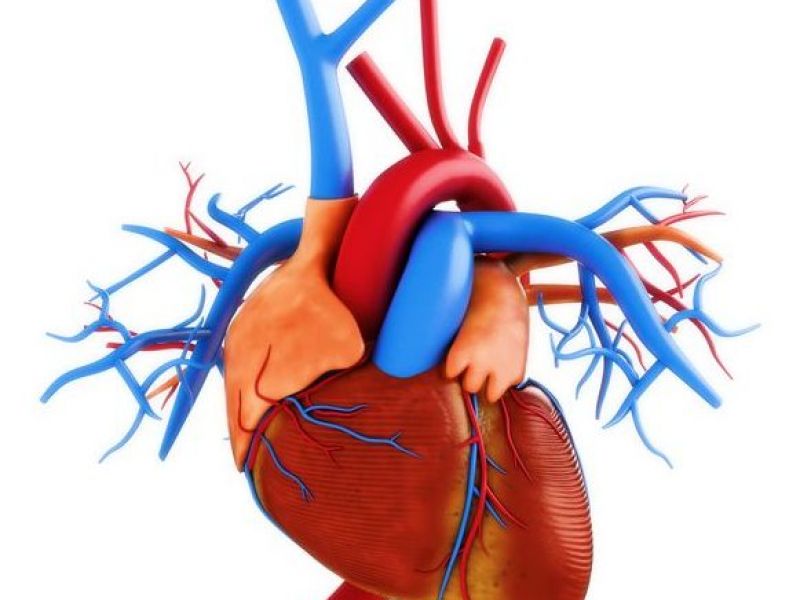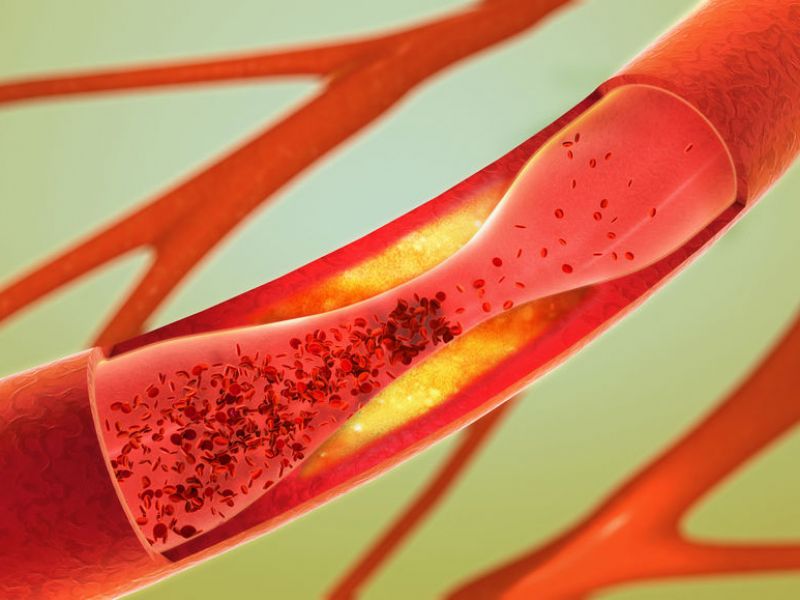Heart health
What do my lab values mean? Part 11
It is often difficult to understand which lab values mean what. We give you an overview in the series "What do my lab values mean?".
Heart health
How healthy is your heart? What are you doing for your heart health? Cardiovascular diseases are still very widespread - still the number one cause of death. Modern medicine also recognises that not only medication, but also a healthy lifestyle are important for heart health and longevity.
Do you have blood relatives who have died from cardiovascular diseases? If so, you probably also have a much higher cardiovascular risk. | 1 The good news is that there are laboratory values that indicate genetic risk: Apolipoprotein B and Lipoprotein A. Only 3 cardiac risk parameters are measured during screening: BMI, blood pressure and blood lipids.
Statutory screening
During the screening, body weight and BMI (Body Mass Index = ratio of body weight to height), the blood lipids total cholesterol, HDL cholesterol and triglycerides are measured and the frequency of heart disease in the family is questioned. In our view, this is a very limited diagnostic of known risk factors.
Oxidised LDL cholesterol
Recent research has shown that the most important risk factor within blood lipids is "oxidised LDL cholesterol". This value shows what proportion of cholesterol makes the surfaces of the blood vessels unstable, so that heart attacks, arteriosclerosis and strokes can occur more easily. Even if other cholesterol proportions are high, the heart risk is practically exclusively determined by oxidised LDL cholesterol.
Apolipoprotein B (ApoB)
This value indicates even more precisely the risk of cardiovascular disease. An elevated level of apolipoprotein B substantially increases the risk of atherosclerosis and heart disease. People with low levels of apolipoprotein B have a significantly reduced risk of coronary disease. People with high apolipoprotein B have a several-fold increased risk of heart attack. | 2 | 3 | 4 | 5
Several studies show that apolipoprotein B is a more reliable parameter for coronary heart disease than total cholesterol, LDL cholesterol and HDL cholesterol. If lifestyle risk factors are reduced, the value of apolipoprotein B improves.
Lipoprotein A (LpA)
The inherited risk of suffering from cardiovascular diseases is expressed in this value. The higher the measured value, the greater the risk. The measurement result of LpA usually remains stable for life. But don't worry! With good lifestyle, called "ahara" (nutrition) and "vihara" (lifestyle) in Maharishi Ayurveda, you can escape this risk.
Heart-healthy despite genetic risk
Elevated levels of lipoprotein A and apolipoprotein B thus indicate an increased genetic risk of developing heart attacks or arteriosclerosis. However, this risk can be influenced and is no reason to bury one's head in the sand. One study showed that a Mediterranean diet rich in nuts and/or olive oil significantly reduced the cardiovascular risk. | 6
This diet to reduce apolipoprotein B was structured as follows:
- Low in saturated fats (meat, sunflower oil).
- Plenty of extra virgin olive oil
- Nuts
- Plenty of fibre-rich foods (whole grains, pulses, berries)
- Low in sugar
- Few processed foods
- Cold water fish and/or omega-3 oil
Walnuts
Walnuts have the specific property of reducing elevated levels of apolipoprotein B. In one study, a daily intake of 40g of walnuts for 8 weeks also significantly lowered cholesterol levels, including LDL cholesterol. | 7 | 8
Omega-3 oil
Studies published in the scientific journal "Nature" showed that intake of the omega-3 fats EPA and DHA reduced apolipoprotein B levels by 30%. It is recognised by EU food authorities that omega-3 oils EPA and DHA as food supplements improve heart health. | 13 | 14
Sport and exercise
Sedentary lifestyles are an increasingly common risk factor for heart disease. Regular exercise, especially aerobic exercise with nasal breathing, significantly reduces the risk of heart disease and atherosclerosis. | 9
READING TIP: Life is exercise!? Sport is murder!?
Other factors that increase apolipoprotein B are: Sugar in the diet and diabetes | 10, obesity and smoking. | 11
Sleep
In a large-scale study with over 7000 participants, a correlation between sleep duration and apolipoprotein B was found. Subjects with less than 6 hours of sleep had 1.75 times higher levels of apolipoprotein B than subjects with 7-8 hours of sleep. | 12
Summary
Support your heart health with the following factors:
- Annual apolipoprotein B test in addition to statutory screening.
- Healthy oils in your diet (virgin olive oil, omega-3 oils)
- Walnuts
- Daily aerobic exercise 30-60 minutes
- Reduced sugar intake
- 7-8 hours of sleep per night
Lab block of our practice to check heart health:
- Blood pressure
- BMI (body weight/height)
- Total cholesterol
- HDL cholesterol
- Non-HDL cholesterol
- LDL cholesterol
- Oxidised LDL cholesterol
- Triglycerides
- Fasting sugar
- Insulin and HOMA index
- C-reactive protein
- Homocysteine
- Apolipoprotein B (ApoB)
- Lipoprotein A (LpA)
- Possibly hormone status (oestrogen dominance?)
Do you know your personal risk factors for heart disease and arteriosclerosis?
We would be happy to help you not only to assess your heart risk, but also to significantly reduce this risk through measures from Maharishi Ayurveda and modern medicine. This is the path to a healthy long life.
Sources:
- https://www.ncbi.nlm.nih.gov/pmc/articles/PMC3769178/
- https://www.lifeextension.com/magazine/2012/5/blood-testing-can-save-your-life
- https://www.ncbi.nlm.nih.gov/pmc/articles/PMC5310383/
- https://pubmed.ncbi.nlm.nih.gov/17938300/
- https://pubmed.ncbi.nlm.nih.gov/8759066/
- https://pubmed.ncbi.nlm.nih.gov/21640348/
- https://pubmed.ncbi.nlm.nih.gov/24360749/
- https://www.ncbi.nlm.nih.gov/pmc/articles/PMC5691297/
- https://onlinelibrary.wiley.com/doi/pdf/10.1111/j.1365-2796.2007.01806.x
- https://pubmed.ncbi.nlm.nih.gov/15823289/
- https://pubmed.ncbi.nlm.nih.gov/28264492/
- https://www.ncbi.nlm.nih.gov/pmc/articles/PMC5755033/
- https://www.nature.com/articles/1600522
- https://pubmed.ncbi.nlm.nih.gov/15946668/





We look forward to your feedback!